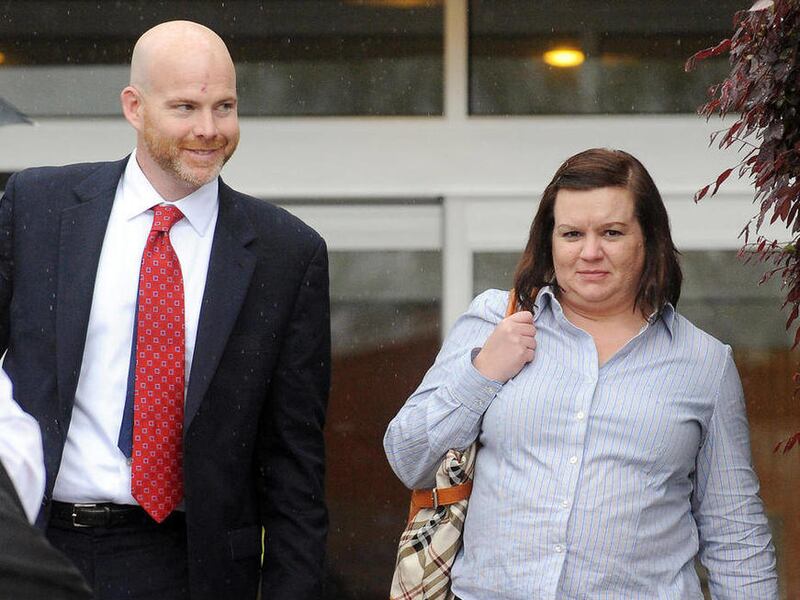LUFKIN, Texas — A former Texas nurse accused of killing five kidney dialysis patients by injecting them with bleach caused others to fear for their lives after they witnessed some of the injections, a prosecutor told jurors during closing arguments Thursday.
Two patients testified that they saw Kimberly Clark Saenz inject bleach into the IV lines of two other patients, Angelina County District Attorney Clyde Herrington reminded jurors. Prosecutors allege that Saenz, 38, caused the patients' deaths in April 2008 by injecting bleach into their dialysis lines at a clinic in Lufkin, a city about 125 miles northeast of Houston.
The two patients "saw something that was unusual and scared them to death. Had it not been for (the patients) we might not be here," Herrington said.
But defense attorney Ryan Deaton told jurors that Saenz is innocent and is being targeted by the clinic's owner for faulty procedures at the facility, including improper water purification. Deaton also suggested that clinic officials have fabricated evidence against Saenz.
The clinic where Saenz worked is owned by Denver-based health care giant DaVita Inc.
"All we have here today is Ms. Saenz being a scapegoat for the sins of a Fortune 500 company," Deaton said.
If convicted of capital murder, Saenz could face the death penalty. Her trial, in its fourth week, began March 5.
She didn't take the stand in her own defense. But in a recording played at trial, the former nurse could be heard testifying before a grand jury that she felt "railroaded" by the clinic and "would never inject bleach into a patient."
Saenz is charged with one capital murder count that accuses her of killing as many as five patients. She's also charged with five counts of aggravated assault for injuries to five other patients.
Investigators testified that they found Internet searches on Saenz's computer about bleach poisoning in blood and whether bleach could be detected in dialysis lines.
Bleach is commonly used to disinfect plastic lines and other dialysis equipment at the clinic. Saenz's attorneys said she was spotted measuring bleach into a syringe because she wanted to put the right amount into cleaning water.
Former DaVita employees who testified for prosecutors told jurors that they never used syringes instead of measuring cups to ensure the proper amounts of bleach were being used in cleaning solutions. Dialysis patients spend up to three days a week tethered for hours to a machine that filters their blood because their kidneys can't do so.
Saenz was charged a year after the clinic was closed for about two months in the wake of a rash of illnesses and deaths in April 2008. Emergency crews had been called to the clinic as many as 30 times that April and made at least 19 runs. Seven of the calls were for cardiac problems.
There had been only two calls during the previous 15 months, according to the Texas Department of Health Services.
DaVita Inc. investigated along with local, state and federal agencies.
A Food and Drug Administration report found some samples linked to some victims tested positive for bleach while others showed bleach "may have been present at one time."


